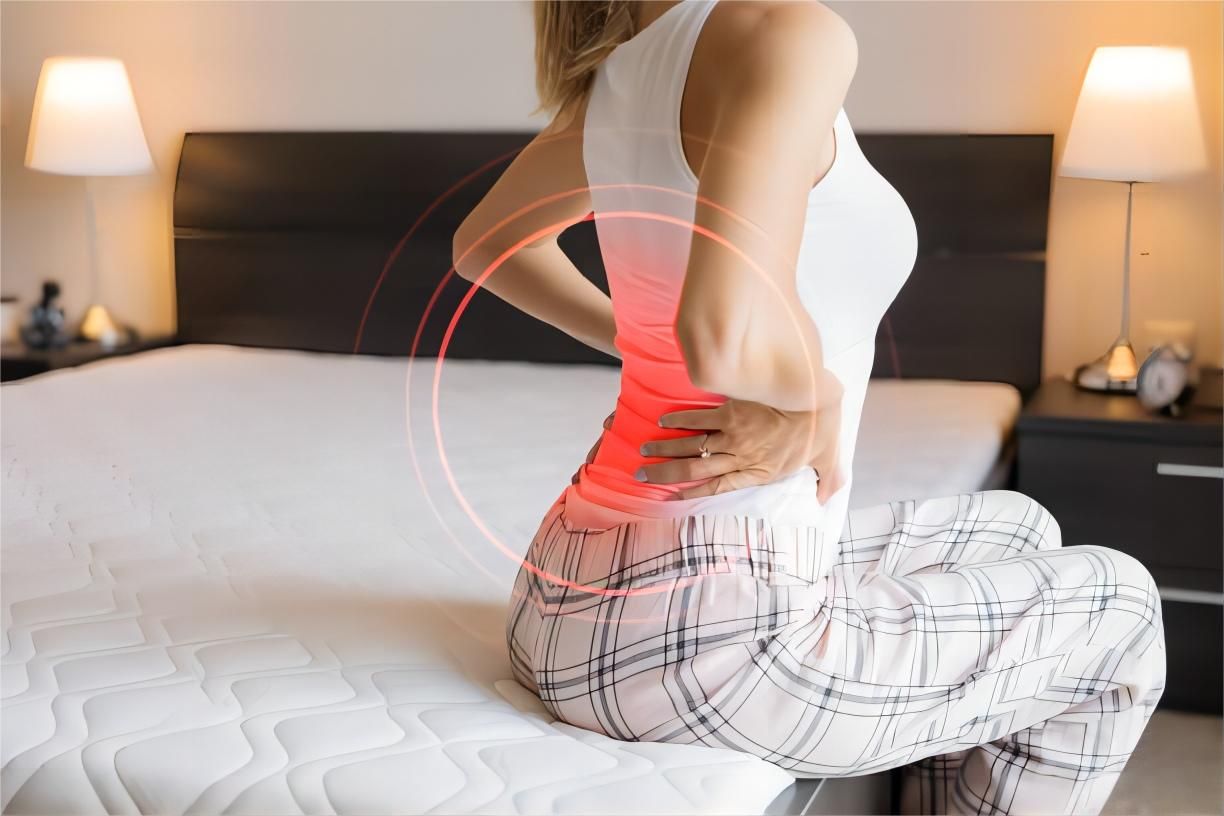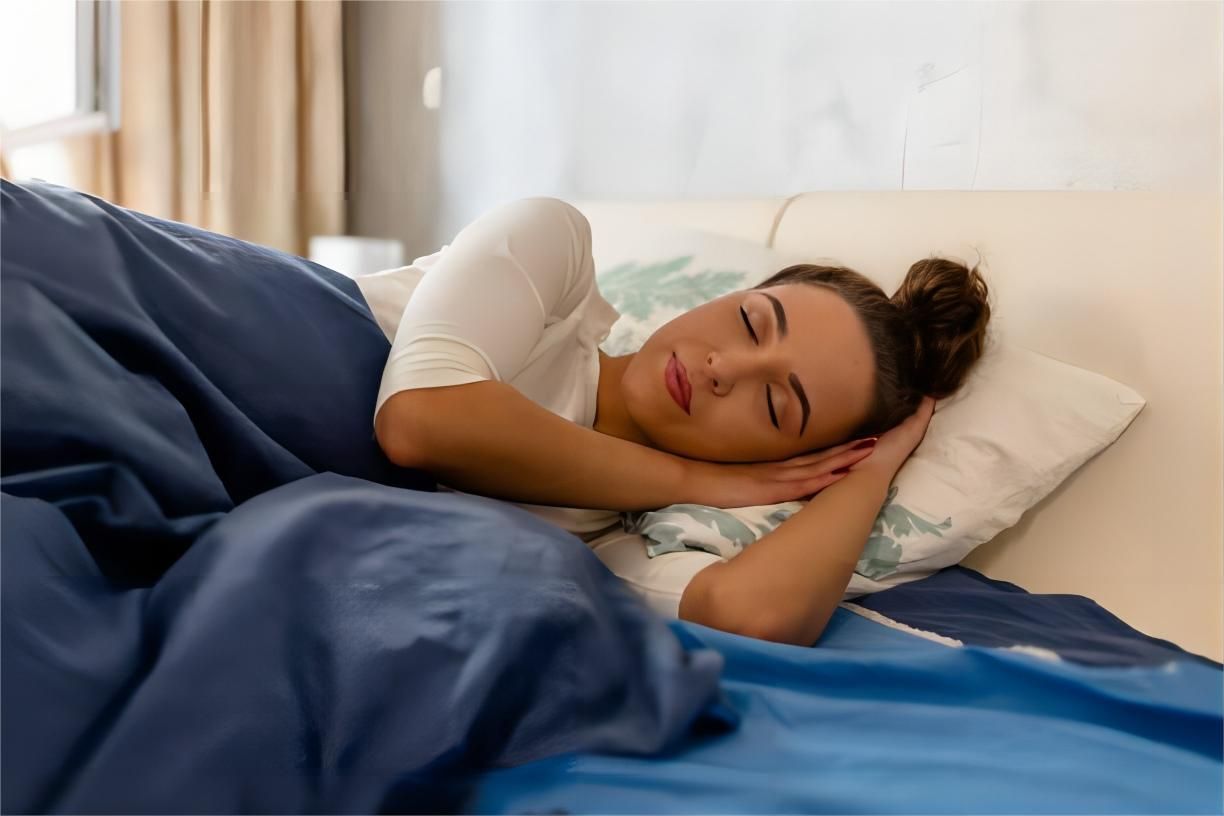john@lee-mat.com
+86-13510662576

GET QUOTE
How Should You Sleep with Back Pain?
In this blog, we'll explore the relationship between sleep and back pain and provide practical guidance on sleeping positions tailored for back pain relief. Whether you're struggling with acute discomfort or chronic issues, understanding how to sleep properly can make a significant difference in your quality of life.
Understanding Back Pain
Back pain can be a complex issue, rooted in the intricate anatomy of the spine. The back is comprised of various structures, including vertebrae, discs, ligaments, and muscles, all working together to support the body and facilitate movement.
There are several common causes of back pain, ranging from muscle strains and overexertion to more serious conditions like herniated discs or spinal stenosis. Understanding the underlying cause of your back pain is crucial for effective management and treatment.
Back pain can be categorized as either acute or chronic. Acute back pain typically lasts for a short period, often due to a specific injury or event. On the other hand, chronic back pain persists for three months or longer and may be more challenging to manage.
The impact of back pain on sleep quality cannot be overstated. Discomfort and pain can make it difficult to find a comfortable sleeping position, leading to disruptions in sleep patterns and overall sleep quality.
The Relationship Between Sleep and Back Pain
The relationship between sleep and back pain is bidirectional, meaning they can influence each other in a cyclical manner. Back pain can disrupt sleep by causing discomfort and making it challenging to find a restful position. Conversely, poor sleep can exacerbate back pain by impairing the body's ability to heal and recover.
When back pain disrupts sleep, it can lead to a vicious cycle where inadequate rest further exacerbates pain and discomfort. This highlights the importance of finding the right sleeping position to alleviate back pain and promote better sleep quality.
Finding the right sleeping position is crucial for back pain relief. By maintaining proper spinal alignment and reducing pressure on the affected areas, individuals can minimize discomfort and improve their chances of getting a good night's sleep.
Best Sleeping Positions for Back Pain Relief
Side Sleeping Position
Side sleeping is often recommended for back pain relief as it promotes proper spinal alignment and reduces pressure on the lower back. Placing a pillow between your knees can further enhance comfort and alignment, ensuring a restful sleep.
Back Sleeping Position
Sleeping on your back can also help alleviate back pain by maintaining a neutral spine position. Using a firm mattress and placing a small pillow under your knees can provide additional support and comfort in this position.
Fetal Position Variant
For individuals with specific back pain conditions such as spinal stenosis or herniated discs, sleeping in the fetal position may offer relief. Curling your body into a fetal position can help open up space between your vertebrae, reducing pressure on the affected areas.
Elevated Legs Variant
Elevating your legs while sleeping can help alleviate pressure on the lower back and improve circulation. Using pillows to elevate your legs or investing in an adjustable bed can make this sleeping position more comfortable and effective for back pain relief.
Addressing Concerns About Stomach Sleeping
While stomach sleeping is generally not recommended for back pain sufferers due to its potential to strain the neck and lower back, some individuals may find it more comfortable. If you prefer sleeping on your stomach, using a thin pillow under your pelvis and opting for a firmer mattress can help minimize discomfort.
Additional Tips for Better Sleep with Back Pain
Importance of Mattress Quality and Firmness
Investing in a high-quality mattress that provides adequate support and firmness is essential for back pain relief. Replace your mattress every 6 to 8 years to ensure optimal comfort and support.
Pillow Placement and Support Strategies
Choosing the right pillow and placing it strategically to support your head and neck can help maintain proper spinal alignment while sleeping. Experiment with different pillow sizes and shapes to find what works best for you.
Considering Lifestyle Factors
Lifestyle factors such as diet, exercise, and stress management can also impact back pain and sleep quality. Maintaining a healthy lifestyle, including regular exercise and stress-reduction techniques, can contribute to overall well-being and better sleep.
Incorporating Relaxation Techniques
Incorporating relaxation techniques such as deep breathing exercises, meditation, or gentle stretching before bedtime can help relax tense muscles and promote better sleep quality. Establishing a bedtime routine can signal to your body that it's time to wind down and prepare for sleep.
Conclusion
Finding the right sleeping position can make a significant difference in managing back pain and improving sleep quality. Whether you prefer side sleeping, back sleeping, or have specific needs like the fetal position or elevated legs, there are options available to alleviate discomfort and promote restful sleep.
For those seeking additional support, consider exploring products from Lee-Mat, a professional manufacturer specializing in medical and sports orthotics. Lee-Mat offers a comprehensive range of sports and medical support products, braces, and orthotics designed to provide complete solutions for sports and rehabilitation support. Their expertise in developing high-quality orthotic devices can be invaluable in your journey to manage back pain and improve sleep quality. Don't hesitate to choose Lee-Mat for guidance and support.


